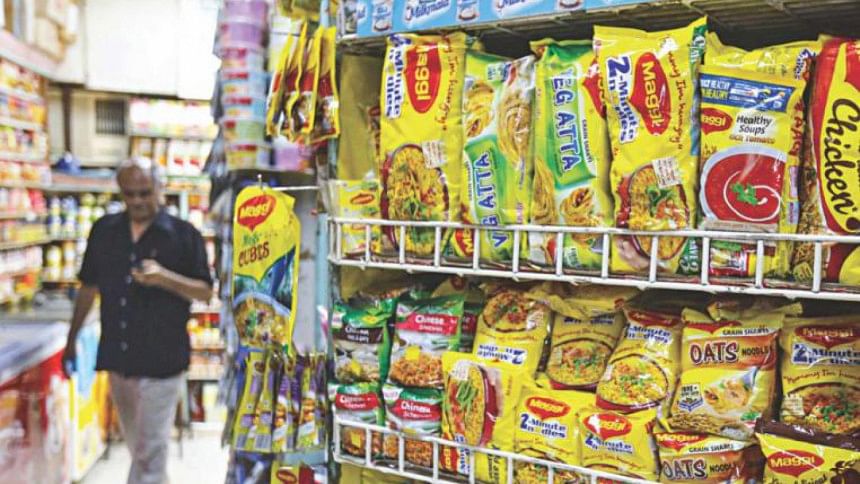Maggi noodles go back on sale in India

Nestle has relaunched its popular Maggi noodles in India, five months after a food scare saw them taken off shelves.
In May, Indian food safety authorities banned the production and sale of Maggi amid claims they contained dangerously high levels of lead.
The ban was overturned in the Mumbai High Court in August.
Nestle India's new boss, Suresh Narayanan, has told the BBC the tests which were carried out on the noodles were "highly unreliable".
Nestle had to destroy 400 million packets of Maggi products and stop production in the wake of the tests.
The product recall cost the company $67m (£44.5m).
A company statement on Monday said it had been "a challenging period for the Nestle organisation and therefore, there is a feeling of satisfaction at bringing back Maggi noodles to the market".
Narayanan was brought in to handle the crisis from Nestle's unit in the Philippines and is the first Indian-born head of Nestle India in decades.
He told the BBC the labs which tested the noodles "had not been accredited".
He said that meant they could have been missing the right systems or people qualified to carry out such tests, as well as equipment.
India's government is suing Nestle for $100m over allegedly misleading Maggi adverts, a case which Narayanan said was based on bad tests.
Fresh tests mandated by an Indian court found last month that the lead content in Maggi noodles was at a safe level.
"Things went out of hand"
Nestle was also criticised for what was seen as a slow reaction to the crisis.
Narayanan, who took over at the start of August, said the company had not reviewed the sequence of events yet, but that during the crisis Nestle had been talking to the regulator.
Nestle's efforts to get across its point of view "did not work" and "unfortunately, things went out of hand", he said.
The company is planning a consumer helpline and says it will be more active on social media.

 For all latest news, follow The Daily Star's Google News channel.
For all latest news, follow The Daily Star's Google News channel. 



Comments